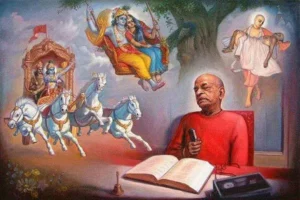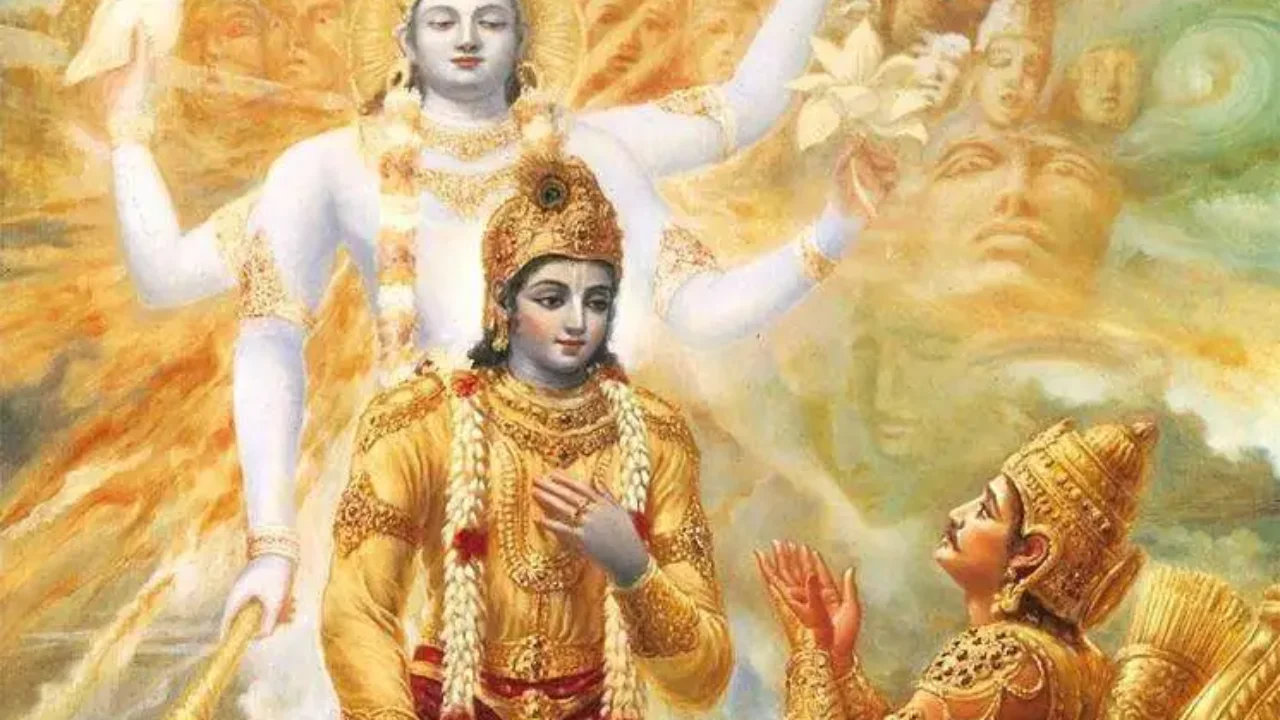

?r?-yamad?t? ?cu?
veda-pra?ihito dharmo
hy adharmas tad-viparaya?
vedo n?r?ya?a? s?k??t
svayambh?r iti ?u?ruma?r?mad-Bh?gavatam 6.1.40
The Yamad?tas explain that dharma (religious principles) means following what Vedas prescribes. The opposite of that is irreligion. The Vedas are directly the Supreme Personality of Godhead, N?r?ya?a, and are self-born. They confirm that this understanding is coming in aural reception from Yamar?ja.
N?r?ya?a? para? avyakt?t anasambhava?. Avyakta means the whole material energy in its unmanifested state. When it manifests, it is called vyakta. A house is a manifestation of the five elements: earth, water, air, fire. The elements are there already, but we don’t see any structure. Once combined, we see them become a house, a big skyscraper building. This difference is called vyakta and avyakta.
N?r?ya?a? para? means N?r?ya?a is transcendental. N?r?ya?a is the creator implying He exists before the creation. And Vedo n?r?ya?a? s?k??t. So, Veda is also non-different from N?r?ya?a. It is also para? or present before the material world comes into existence.
If some person, a great philosopher of this material world, thinks, he says, “I believe,” and he writes something that is nonsense. That is not Veda because he is a created being, and as a created being, he has got four defects. His senses are imperfect.
So how can he say that by so-called mental speculation, whatever he creates is perfect knowledge? Perfect knowledge is there, Veda because Vedas existed before the creation. And whatever we make with our scholarship, they’re imperfect.
Therefore Vedas also are called apauru?eya. Apauru?eya means any mundane person does not write it. Tene brahma h?d? ya ?di kavaye. Krishna instructs Brahm?. So Vedas means coming from directly N?r?ya?a or Krishna, not that Brahm? has created. Brahm? has Vedas in his hand, but he has received them from N?r?ya?a. That is the information we get.
Brahm? instructed his disciple N?rad Muni who in turn taught Vyasa deva. In this way, Vedic knowledge is coming. Therefore it is called parampar?, disciplic succession. We don’t manufacture. We receive the perfect knowledge, by disciplic succession, beginning from N?r?ya?a.
So whatever we are getting from the ??stra in Krishna consciousness movement, it is not manufactured by man. It is not man-made knowledge. The knowledge is imparted or instructed by N?r?ya?a, or Krishna.